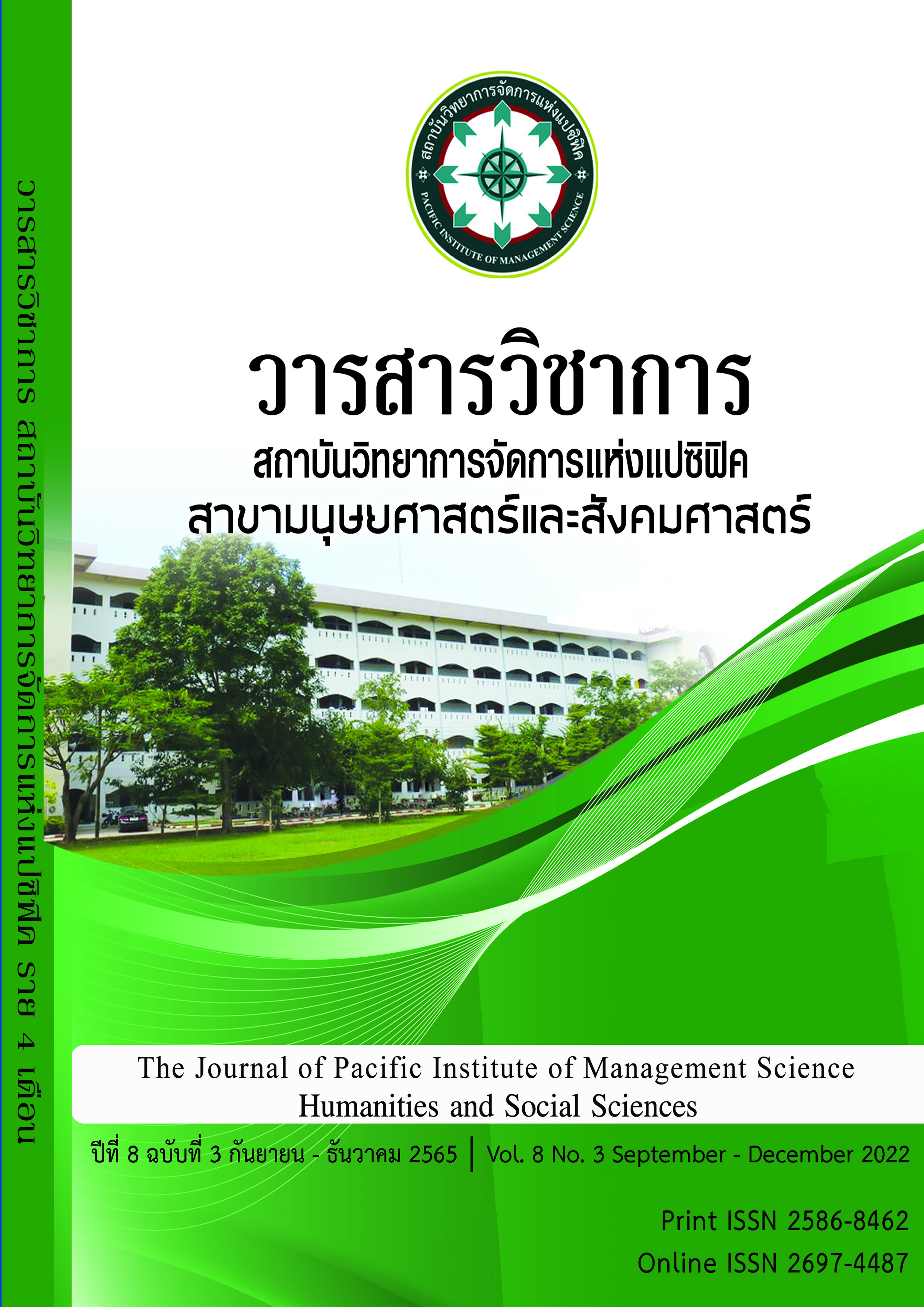Public Law and Principles of Public Law
Keywords:
law, public law, powerAbstract
From the study of names of Thai law from the Sukhothai era to the present. It did not appear that Thailand enacted a law in the name of public law, but found the word "public law" as the name of a law course learned about power to be used in the government at all levels. It is not a criminal matter and it is not a civil matter. It is about the powers that are provided in the laws, the powers that are in the constitution. It is the legislative power, the executive power, the judicial power, and the powers derived from the other laws. It is about the rules, Administrative order, Administrative action and administrative contracts, and when studying the jurisdiction of the Constitutional Court. As for the Administrative Court, it is the same judgment in relation to the matter of power. The Constitutional Court considered the legislative, executive and judicial power, and organizations related to these three powers. The Administrative Court considered the case on the rules Administrative order Administrative action and administrative contracts, which is the administrative power used in the administration of the State affairs. The Court of Justice and the Military Court do not consider cases in connection with the matter of power and the rule used criteria used on power are called "principles of public law". When considering the constituents of power under the provisions of the law and the jurisdiction of the court, it is found that the composition or structure of power consists of: 1. Law 2. Legal authority 3. Principles of law 4. Authority
The aforementioned elements cannot be missing any one component, that is, there is no law, no power, because power is derived from law and the law will also enact the user of power. In which the power user must exercise the powers that have been received in accordance with the rules provided by law. In order to fulfill the duties as provided by law and when there is a dispute, it will be within the jurisdiction of the Constitutional Court or the Administrative Court according to the case and the rules used by the court in making judgments are called "principles of public law".
Keyword: law, public law, power
References
กิจบดี ก้องเบญจภุช. (2560). กฎหมายมหาชน. กรุงเทพฯ: มหาวิทยาลัยรามคำแหง.
กิจบดี ก้องเบญจภุช. (2561). กฎหมายรัฐธรรมนูญและสถาบันการเมือง. พิมพ์ครั้งที่ 6. กรุงเทพฯ: มหาวิทยาลัยรามคำแหง.
คำพิพากษาศาลฎีกาที่ 45/2496.
คำพิพากษาศาลฎีกาที่ 1234/2523.
คำพิพากษาศาลฎีกาที่ 1662/2502.
บรรเจิด สิงคะเนติ. (2543). หลักพื้นฐานสิทธิเสรีภาพและศักดิ์ศรีความเป็นมนุษย์. กรุงเทพฯ: วิญญูชน.
พรรณรัตน์ โสธรประภากร. (มกราคม-มิถุนายน 2562). ความสัมพันธ์ระหว่างการร่างกฎหมาย การตีความและการบังคับใช้กฎหมาย. วารสารวิชาการ คณะนิติศาสตร์ มหาวิทยาลัย ราชภัฏอุบลราชธานี 7 (1) : 36-37.
พระราชบัญญัติจัดตั้งศาลปกครองและวิธีพิจารณาคดีปกครอง พ.ศ. 2542
พระราชบัญญัติธรรมนูญจัดตั้งศาลทหาร พ.ศ. 2498, มาตรา 30
พระราชบัญญัติปรับปรุงกระทรวง ทบวง กรม พ.ศ. 2545
พระราชบัญญัติประกอบรัฐธรรมนูญว่าด้วยวิธีพิจารณาของศาลรัฐธรรมนูญ พ.ศ. 2561
พระราชบัญญัติระเบียบข้าราชการฝ่ายตุลาการ พ.ศ. 2543
พระราชบัญญัติระเบียบบริหารราชการแผ่นดิน พ.ศ. 2534
พระราชบัญญัติว่าด้วยการวินิจฉัยชี้ขาดอำนาจหน้าที่ระหว่างศาล พ.ศ. 2542. ราชกิจจานุเบกษา. เล่มที่ 116 ตอนที่ 104 ก.
พระราชบัญญัติวิธีปฏิบัติราชการทางปกครอง พ.ศ. 2539
รัฐธรรมนูญแห่งราชอาณาจักรไทย พุทธศักราช 2560.
Downloads
Published
Issue
Section
License
Copyright (c) 2022 Pacific Institute of Management Science

This work is licensed under a Creative Commons Attribution-NonCommercial-NoDerivatives 4.0 International License.
บทความที่ได้รับการตีพิมพ์เป็นลิขสิทธิ์ของ สถาบันวิทยาการจัดการแห่งแปซิฟิค
ข้อความที่ปรากฏในบทความแต่ละเรื่องในวารสารวิชาการเล่มนี้เป็นความคิดเห็นส่วนตัวของผู้เขียนแต่ละท่านไม่เกี่ยวข้องกับสถาบันวิทยาการจัดการแห่งแปซิฟิค และคณาจารย์ท่านอื่นๆในสถาบันฯ แต่อย่างใด ความรับผิดชอบองค์ประกอบทั้งหมดของบทความแต่ละเรื่องเป็นของผู้เขียนแต่ละท่าน หากมีความผิดพลาดใดๆ ผู้เขียนแต่ละท่านจะรับผิดชอบบทความของตนเองแต่ผู้เดียว







